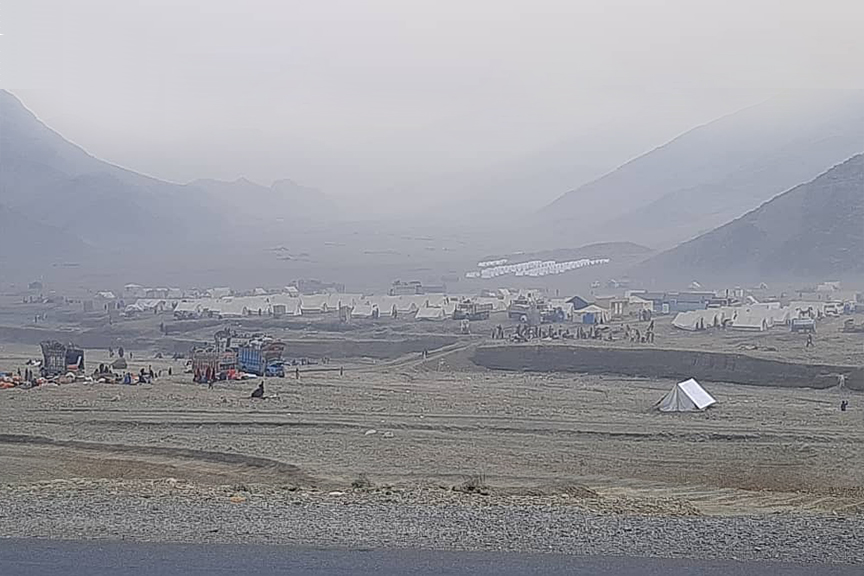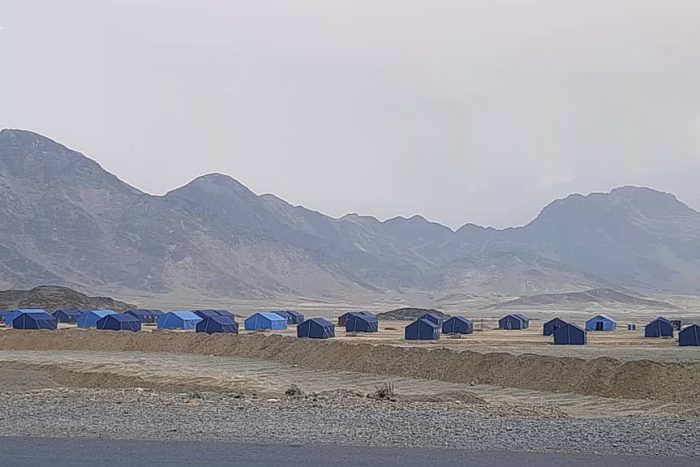Humanitarian needs further escalate as thousands of refugees forcefully repatriated in Afghanistan
Pakistan is home to over 4 million Afghan refugees, about 1.7 million of whom are undocumented1. Afghans make up the largest portion of refugees in the country– at least 600,000 came after the new government was established in Afghanistan in 2021, but a large number have been present since the conflicts in 1979.
Recently, Pakistan issued an order for all undocumented immigrants, predominantly 1.73 million Afghan nationals, to leave voluntarily or face deportation. Afghan individuals typically depart from Pakistan via the Torkham and Chaman border crossings, where the present Afghan government have established temporary camps to accommodate those awaiting repatriation to Afghanistan. The International Organization for Migration (IOM) reports a considerable surge in daily arrivals, now averaging between 9,000 and 10,000 individuals, a stark contrast to the previous average of 300 individuals per day prior to the announcement on September 15, 2023.
Aid agencies have highlighted the lack of adequate shelter at Torkham, coupled with limited access to basic necessities such as drinking water, heating, lighting, and sanitation facilities. This has led to unhygienic conditions, including open defecation. In response, various U.N. agencies and aid groups are swiftly establishing facilities to assist the escalating number of individuals entering Afghanistan each day.
Today, 19.9 million Afghans (nearly half the population) face severe hunger due to four decades of conflict, with poverty impacting more than 90% of the country’s population and over half of Afghans reliant on humanitarian aid. According to WFP reports (March 2023), four million children and women are severely malnourished in the country. Last year, Afghanistan endured its worst drought in 30 years and now faces its third consecutive year of drought. Today, 25 out of 34 provinces experience either severe or catastrophic drought conditions, affecting more than 50 percent of the population2.
With millions of refugees now forced to return back in huge numbers and with the harsh Afghan winter approaching, aid operations in the country face a critical and ever-increasing funding gap. As the end of the year draws near, the $3.2 billion appeal to help more than 29 million people across the country is just 36 percent funded and this does not include the latest needs that have risen due to the Herat Earthquake and the current exodus of refugees back into the country.

Current Challenges
In a recent meeting with the Governor and the staff of the Directorate of Returnees and Refugees, Nangarhar Province, the following challenges were highlighted:
- Insufficient medicines & healthcare providers and services
- Lack of Ambulances
- Insufficient human resource for registration and health checks at entry and transit points
- Long registration process and queues at the check points
- Inadequate space and absence of separate waiting areas for men and women
- Lack of access and availability of clean water, sanitation, and hygiene kits
- Limited Resources to increase registration staff or adoption of technology
- Unavailability of food, water or snacks for families at the Torkham border
- Insufficient tents in waiting areas
Urgent Needs of Repatriated Community in Nangarhar Province:
- Shelter for repatriated communities
- Immediate and long-term health care services
- Access to clean drinking water and hygiene facilities
- Food
- Winterization Kits
- Heating Equipment
- Support with documentation & registration
- Livelihood Opportunities
- Education services
- Psychosocial support
Community World Service Asia Response:
Community World Service Asia (CWSA) is in close coordination with the provincial line departments and other relevant stakeholders in the province and Kabul. Our team in Afghanistan is in regular communication with and is engaged with active clusters and directorates working with refugees and repatriated communities. Our teams are closely monitoring the situation on the ground and we are planning multi-purpose cash assistance for three months (harshest winter months Dec – Feb) to 10,000 affected families so that they can meet their basic and urgent food, shelter, winterization and health needs. This will give them a choice and enable them to address their needs in a dignified manner.
Contacts:
Shama Mall
Deputy Regional Director
Programs & Organisational Development
Email: shama.mall@communityworldservice.asia
Tele: 92-21-34390541-4
Palwashay Arbab
Head of Communication
Email: palwashay.arbab@communityworldservice.asia
Tele: 92-21-34390541-4
- https://www.aljazeera.com/news/2023/10/3/pakistan-wants-undocumented-migrants-to-leave-by-november-1-or-get-deported
- International Rescue Committee, Aug, 2023







